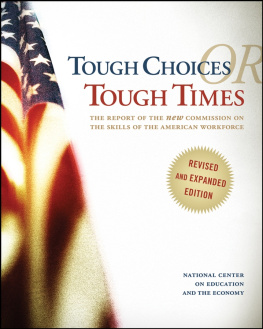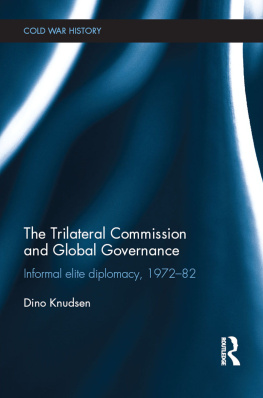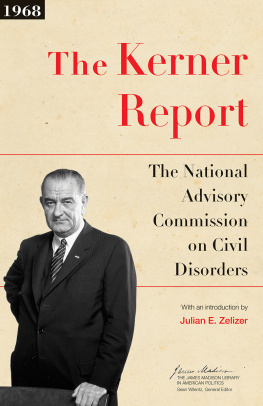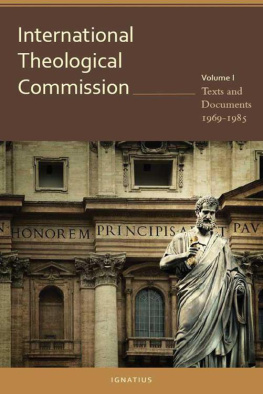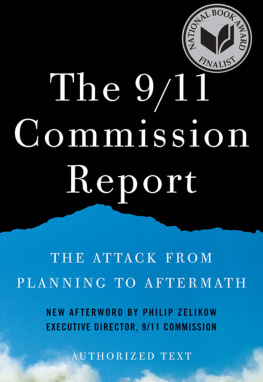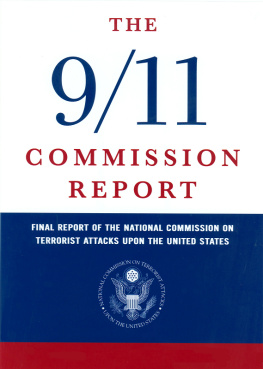Copyright 2018 by Steven M. Gillon
Hachette Book Group supports the right to free expression and the value of copyright. The purpose of copyright is to encourage writers and artists to produce the creative works that enrich our culture.
The scanning, uploading, and distribution of this book without permission is a theft of the authors intellectual property. If you would like permission to use material from the book (other than for review purposes), please contact permissions@hbgusa.com. Thank you for your support of the authors rights.
Basic Books
Hachette Book Group
1290 Avenue of the Americas, New York, NY 10104
www.basicbooks.com
First Edition: March 2018
Published by Basic Books, an imprint of Perseus Books, LLC, a subsidiary of Hachette Book Group, Inc. The Basic Books name and logo is a trademark of the Hachette Book Group.
The Hachette Speakers Bureau provides a wide range of authors for speaking events. To find out more, go to www.hachettespeakersbureau.com or call (866) 376-6591.
The publisher is not responsible for websites (or their content) that are not owned by the publisher.
Library of Congress Cataloging-in-Publication Data
Names: Gillon, Steven M., author.
Title: Separate and unequal : the Kerner Commission and the unraveling of American liberalism / Steven M. Gillon.
Description: New York : Basic Books, 2018. | Includes bibliographical references and index.
Identifiers: LCCN 2017035839| ISBN 9780465096084 (hardback) | ISBN 9780465096091 (ebook)
Subjects: LCSH: United States. National Advisory Commission on Civil DisordersHistory. | United States. National Advisory Commission on Civil Disorders. Report. | RiotsPolitical aspectsUnited States. | United StatesRace relationsPolitical aspects. | Urban poorSocial conditionsUnited States. | African AmericansSocial conditionsUnited States. | United StatesPolitics and government19631969. | Johnson, Lyndon B. (Lyndon Baines), 19081973. | LiberalismUnited States20th century. | United StatesSocial policy20th century. | BISAC: HISTORY / United States / 20th Century. | HISTORY / United States / 21st Century. | POLITICAL SCIENCE / Political Freedom & Security / Civil Rights. | POLITICAL SCIENCE / Government / General. | POLITICAL SCIENCE / Government / National. | POLITICAL SCIENCE / Public Policy / City Planning & Urban Development. | SOCIAL SCIENCE / Discrimination & Race Relations.
Classification: LCC HV6477 .G56 2018 | DDC 363.32/31097309046dc23
LC record available at https://lccn.loc.gov/2017035839
ISBNs: 978-0-465-09608-4 (hardcover), 978-0-465-09609-1 (ebook)
E3-20180130-JV-PC
To Vantuir Luiz Borges
On July 27, 1967, President Lyndon Johnson stood before a national television audience to announce the creation of the National Advisory Commission on Civil Disorders (NACCD). The speech followed deadly and destructive riots in Newark and Detroit, which marked the culmination of four consecutive summers of racial unrest in American cities. The violence in the summer of 1967 marked an important moment in the evolution of the civil rights movement from peaceful protests in the South and the nonviolent rhetoric of Martin Luther King Jr. to violent confrontations in the North and the angry voices of black nationalists such as Stokely Carmichael. The shift shattered the coalition that had just a few years earlier won passage of two monumental civil rights lawsthe Civil Rights Act of 1964 and the Voting Rights Act of 1965and it created a deep and bitter divide between black and white.
The Newark and Detroit riots came at a difficult time in the Johnson presidency. LBJ had dominated Washington during his first years in office. In 1964, after winning election in a massive landslide, he had pushed Congress to pass an ambitious set of social programs as part of his Great Society agenda. Now, however, he found himself trapped, bogged down in a costly and increasingly unpopular war in Vietnam that threatened to tear apart the Democratic Party. Liberals who had cheered his Great Society legislation now split into rival factions of hawks and doves over the war. While Cold War liberals pushed Johnson to wage a more aggressive war, a small but vocal group of critics attacked LBJ from the left, charging that the war squandered resources that should be spent at home. At the same time, a generation gap eroded support for his administration, as many young people, especially those attending elite private colleges and large state universities, vigorously protested the war and rejected Johnsons establishment liberalism.
While fighting off challenges from the left,
A reenergized Republican Party pounced on the divided Democrats. After being declared dead following Barry Goldwaters humiliating defeat in the 1964 presidential election, Republicans clawed back to relevance by attacking their opponents as soft on crime while winning over many moderates with appeals for law and order. The GOP made major gains in the 1966 midterm elections, narrowing Democrats control over Congress and limiting LBJs policy options. The following year, when Johnson asked Congress for a tax increase to fund his Great Society programs, conservative Democrats and Republicans insisted that the administration reduce expenses before it would consider such a measure.
Then came the long hot summer of 1967, when riots ripped through more than one hundred cities. Nearly every week came new violent images of angry confrontations between police and protesters, along with widespread looting and arson that culminated with bloody confrontations in Newark and Detroit. By the end of July, with dozens of dead and whole city blocks burned to the ground, LBJ understood that he needed to assert presidential power and reassure the nation. But what could he do?
Creating a presidential commission seemed like the ideal option: it
Johnson filled the eleven-member commission that he announced that evening with mainstream bipartisan figures. For chairman, he selected Illinois Democratic governor Otto Kerner. Although Kerner would not play a major role, his name would become synonymous with the commission and its work. New Yorks liberal Republican mayor John Lindsay served as vice chairman. There were two African Americans, two Republican and two Democratic members of Congress, representatives from both business and labor, and one woman. There were no radicals or young people, and there was no spokesman for the black nationalist movement. Johnson assumed that his mainstream commission would produce a mainstream report that would endorse the broad outlines of his existing domestic agenda and insulate him from attacks both from the right and from the left.
The new commission, however, failed to follow the White House script. Determined to assert their independence, commissioners hired a team of investigators, visited riot-torn areas, and held hearings with activists and public officials. Their final report, released in March 1968, used stark language to conclude that the riots occurred because white society had denied opportunity to African Americans living in poor urban areas. The report offered dire warnings that only aggressive federal action could prevent future unrest. It proposed a long list of specific recommendations, including the construction of six million new housing units, greater federal spending on education, and more generous welfare payments to those in need. The report stopped short of what many activists and some liberals might have liked, though. At the same time, the cost of funding the reports proposals was far more than President Lyndon Johnson could afford to spend while fighting a billion-dollar war in Vietnam.
Most observers focused
In many ways, it was remarkable that this group of establishment figures would point an accusatory finger at white racism. Before joining the commission, most members had only an abstract awareness of the conditions in poor urban areas. They were shocked by what they witnessed in their trips to riot-ravaged neighborhoods and by the willful neglect exhibited by white officials and public institutions. They saw firsthand that African Americans attended poorly funded schools and lacked access to jobs and even to decent sanitation. At the same time, the commissions field teams, sent to conduct intensive research in the riot cities, sent back damning reports that underscored the wretched conditions in many areas and documented a history of discrimination and white indifference to black concerns. As a result, a broad consensus emerged among the commissioners that they needed to use the report to educate the public and to do so by using provocative language that would shake white America from its indifference.


